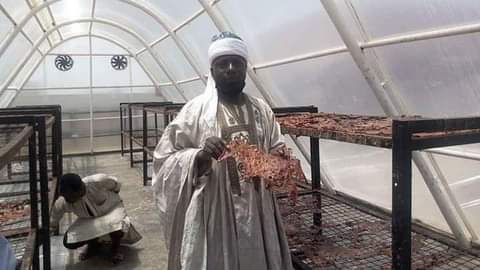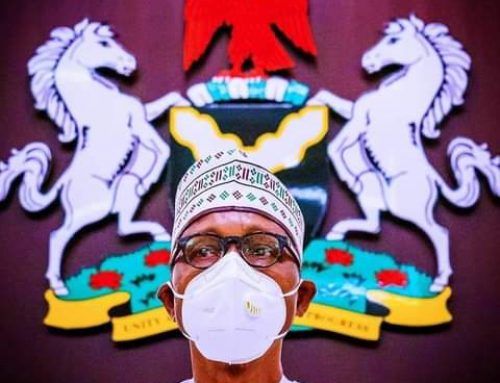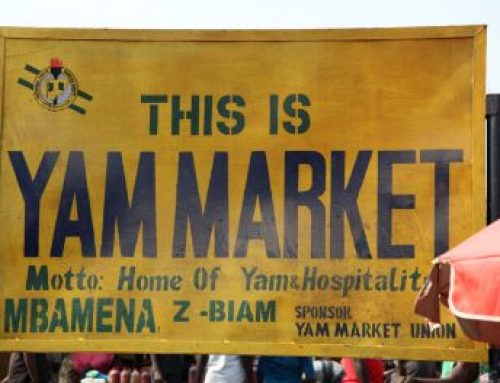Kilishi or beef jerky, a favourite local food that originated in the North, is essentially made from thin strips of raw meat seasoned with spices (locally known as yaji – a mix of chilli, groundnut cake powder, pepper, and salt), smoked over woodfire and sun-dried in the open.
The traditional method is a laborious and time-consuming process which takes two to three days, and longer during the rainy season.
In 2020, The Nigeria Erosion and Watershed Management Project (NEWMAP), a World Bank supported project whose goal is to address severe deforestation and erosion, partnered with the Government of Katsina state to demonstrate a sustainable and innovative way of making Kilishi without charcoal and firewood. The initiative built a solar powered Kilishi factory – solar-powered meat drier domes, fuel-efficient kilns, heat extractors, security lights, borehole, and an office; bringing prosperity to the local community, and creating employment opportunities for the youth.
The solar powered factory has led to a cut in production time from an average of 3-4 days to 3 hours (at peak sunshine); an increase in production capacity – 1,600 kg of meat (about the amount of beef from 8 cows) can now be processed per day – same quantity would take 20 Kilishi makers 2 weeks using the traditional sun-drying method. While production was barely sufficient for domestic consumption earlier, Kilishi is now being exported to customers in Kano, Abuja, and Lagos, while other states like Kaduna, Zamfara and Adamawa have expressed interest in adopting the model.
Processing and drying Kilishi in solar drying domes eliminates the drudgery of doing so in the open air with the constant threat of rain, whirlwinds, flies, and birds contaminating the meat. The improved hygiene and taste of the solar-powered Kilishi has also increased its market value.





Leave A Comment